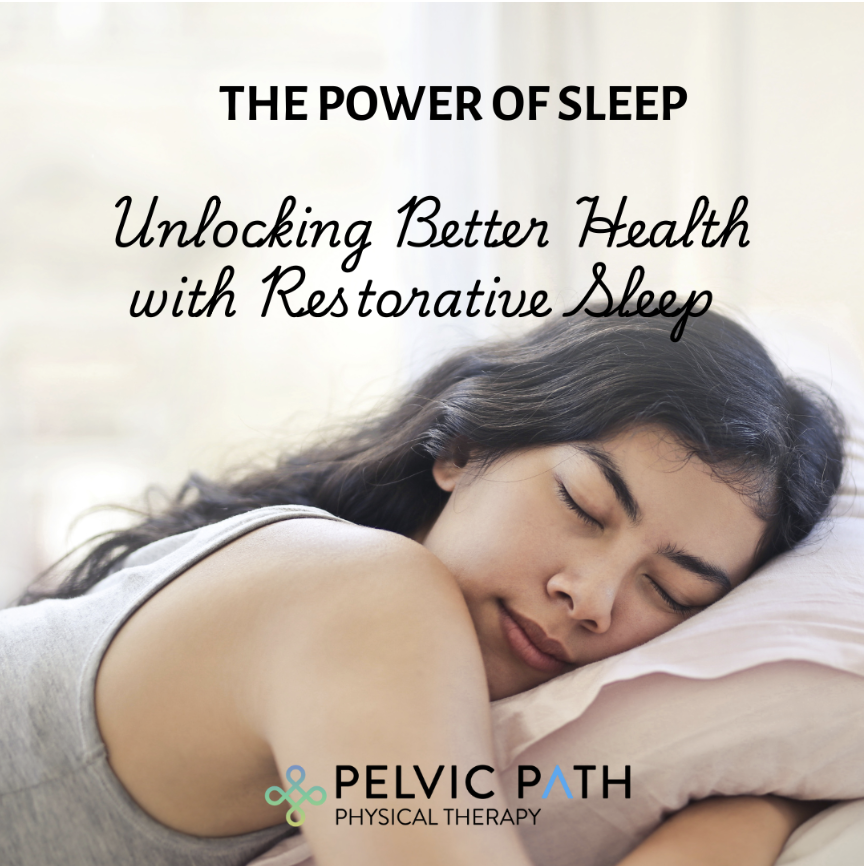The Power of Sleep: Unlocking Better Health with Restorative Rest
In today’s fast-paced world, sleep is often sacrificed in favor of productivity, social events, or even late-night screen time. However, according to Dr. Matthew Walker, author of Why We Sleep, prioritizing high-quality sleep is one of the most important things we can do for our overall health and well-being.
For individuals seeking Physical Therapy in Marin or those undergoing Pelvic Health Physical Therapy, sleep plays a crucial role in recovery, pain management, and overall physical resilience. If you struggle with pain, stress, or injury, understanding the science behind sleep could be the missing link in your healing journey.
Why Sleep Matters for Your Health
Dr. Walker’s research highlights that sleep is not merely a passive activity but a dynamic process essential for brain function, emotional stability, immune health, and physical recovery. When we sleep, our body repairs tissues, consolidates memories, and regulates essential hormones. Inadequate sleep has been linked to increased risk of chronic conditions such as heart disease, diabetes, and even neurodegenerative disorders.
For those recovering from injury or managing chronic pain, sleep becomes even more critical. When sleep quality is poor, the body’s ability to heal is compromised, inflammation increases, and pain sensitivity is heightened.
Sleep and Pain Management
A good night’s sleep is essential for pain reduction. Research shows that poor sleep can lower our pain threshold, making discomfort feel more intense. This has significant implications for individuals seeking Pelvic Health Physical Therapy or Physical Therapy in Marin to recover from conditions such as pelvic floor dysfunction, lower back pain, or post-surgical rehabilitation.
Dr. Walker emphasizes that deep sleep stages, particularly slow-wave sleep, are when the body releases human growth hormone (HGH), which aids in tissue repair and muscle recovery. Without adequate sleep, this process is disrupted, leading to prolonged recovery times and increased risk of reinjury.
The Link Between Sleep and Pelvic Health
Pelvic floor dysfunction can be exacerbated by poor sleep due to increased stress, hormonal imbalances, and heightened pain perception. The nervous system plays a significant role in pelvic health, and when the body is deprived of sleep, the autonomic nervous system is thrown off balance, leading to muscle tightness, spasms, and impaired healing.
Additionally, sleep is closely tied to hormone regulation. Melatonin, the hormone responsible for sleep-wake cycles, also influences reproductive hormones such as estrogen and testosterone, both of which impact pelvic health. By improving sleep quality, individuals can support hormone balance and optimize their pelvic floor function.
How to Improve Sleep for Better Recovery
Based on Dr. Walker’s recommendations, here are some key strategies to improve sleep quality and enhance recovery:
- Maintain a Consistent Sleep Schedule – Go to bed and wake up at the same time every day, even on weekends.
- Create a Sleep-Friendly Environment – Keep your bedroom cool, dark, and free from electronic distractions.
- Avoid Caffeine and Alcohol Before Bed – Both substances can disrupt sleep cycles and prevent deep, restorative sleep.
- Incorporate Relaxation Techniques – Practices such as deep breathing, meditation, or gentle stretching before bed can help reduce stress and prepare the body for sleep.
- Get Natural Light Exposure – Sunlight exposure during the day helps regulate the circadian rhythm, making it easier to fall asleep at night.
- Limit Screen Time – Blue light from screens suppresses melatonin production, making it harder to fall asleep. Try reading a book or listening to calming music instead.
Sleep as Part of Your Healing Journey
If you are undergoing Pelvic Health Physical Therapy or Physical Therapy in Marin, optimizing your sleep can significantly enhance your recovery process. Sleep is not just about rest—it is an active component of healing, strength, and overall well-being.
By making small, intentional changes to your sleep habits, you can experience reduced pain, improved mobility, and a greater sense of vitality. Whether you are recovering from an injury, managing chronic pain, or simply striving for better health, prioritizing sleep is a powerful step toward a stronger, healthier you.


